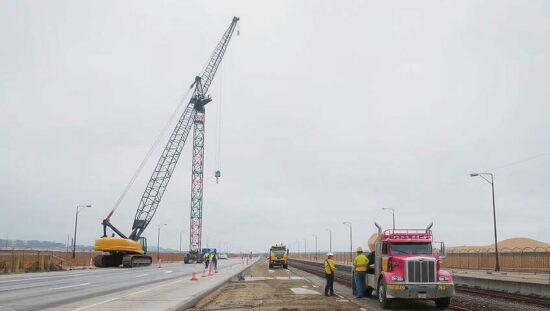The German government’s ambitious, debt-financed special fund for infrastructure projects faces a significant risk of spiraling costs, according to a stark warning from the Ifo Institute. The institute cautions that the surge in demand stemming from the fund’s creation could trigger inflationary pressures and ultimately diminish the impact of the investment.
Oliver Falck, Director of the Ifo Center for Innovation Economics and Digital Transformation, emphasized the urgent need for efficient allocation of resources. “It’s critical that funds are deployed effectively and don’t simply evaporate due to rising prices” he stated. The core concern revolves around the potential for state investment to drive up labor costs, particularly in sectors already grappling with critical skill shortages. Furthermore, escalating property values and engineering service fees pose additional threats to project budgets.
Falck’s assessment highlights a crucial vulnerability in the government’s strategy: the inherent price volatility associated with large-scale public investment. Without careful prioritization, he argues, the fund risks diminishing returns, dispersing resources across less impactful ventures. He specifically calls for investment to be targeted at projects generating the greatest positive impact on economic growth and competitiveness, alongside a realistic assessment of implementation capacity. To mitigate potential bottlenecks, Falck advocates for attracting skilled professionals from abroad.
Industry leaders echoed these concerns, underlining the need for accelerated governmental action. Tim Oliver Müller, CEO of the German Construction Industry Association, stressed the urgency for clarity and defined timelines regarding fund availability for critical infrastructure such as roads, bridges and waterways. His members require immediate visibility into upcoming projects and tenders to adequately prepare.
Tanja Gönner, CEO of the Federation of German Industries, underscored the broader economic implications. To ensure the special fund generates substantial, measurable impact on the overall economy, she demands streamlined permitting processes, a rigorous reduction of bureaucratic hurdles and a highly efficient utilization of available resources. The absence of these reforms risks rendering the significant investment largely ineffective. The underlying question now becomes whether the government can effectively administer this vast influx of funds while simultaneously managing the escalating risks of inflation and project delays.





